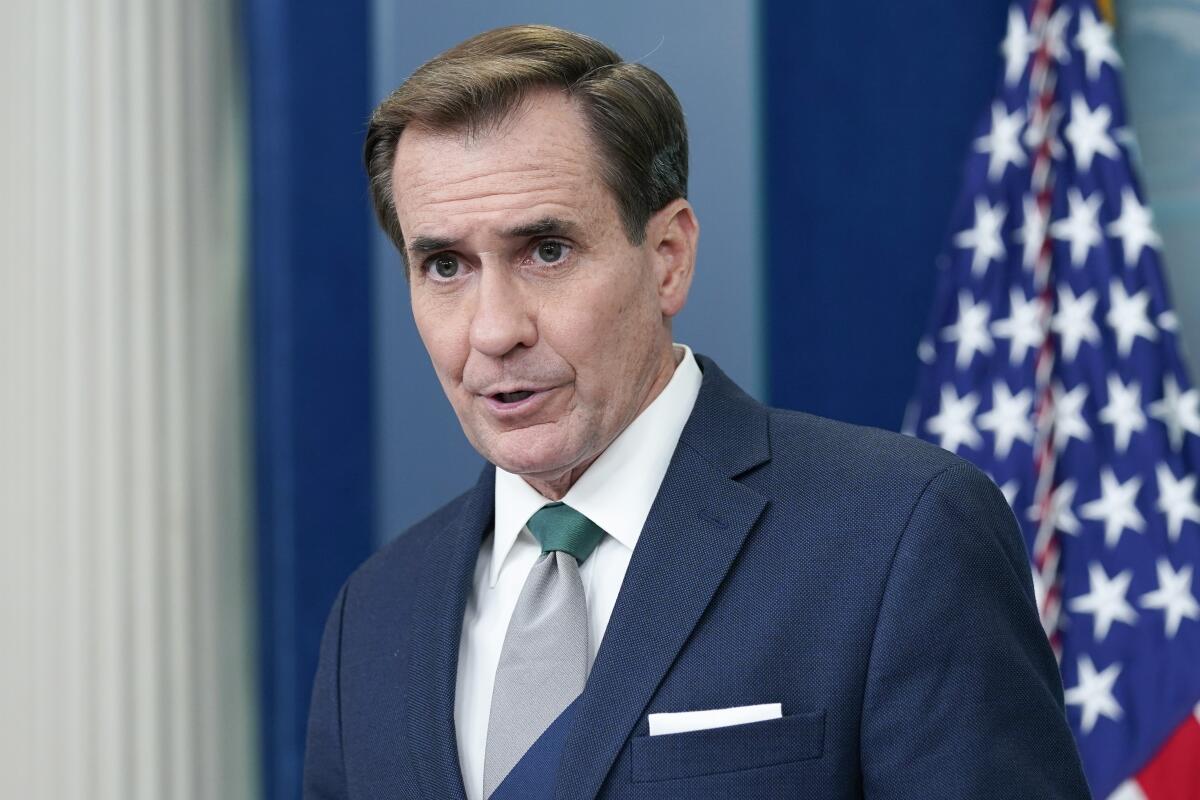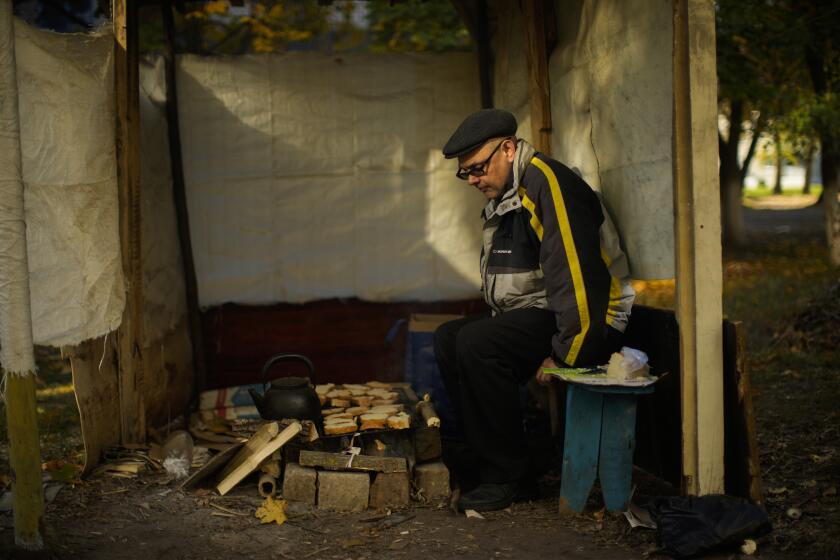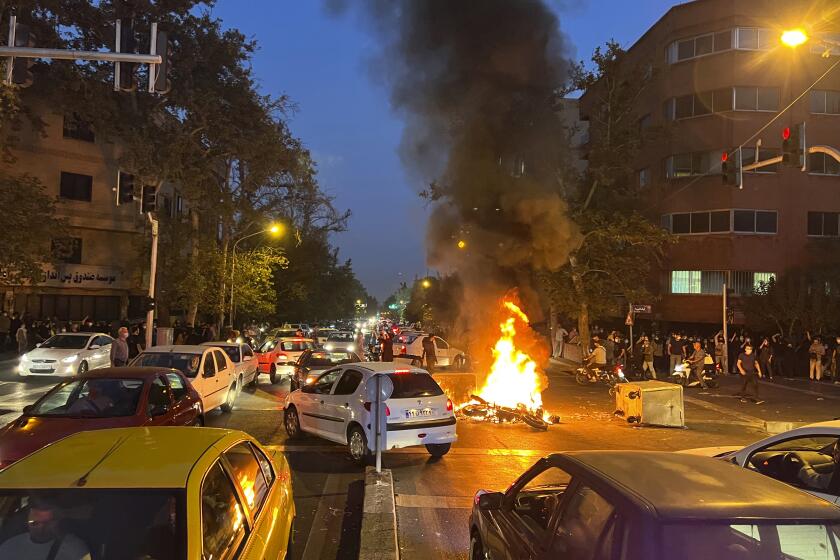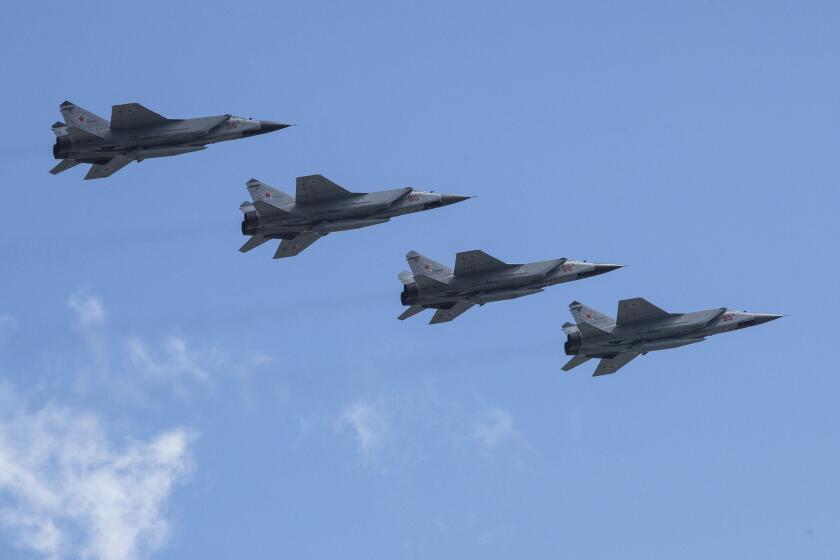Iranian troops in Crimea back Russian drone attacks on Ukraine infrastructure, U.S. says

- Share via
WASHINGTON — The White House said Thursday that the U.S. has evidence that Iranian troops are “directly engaged on the ground” in Crimea supporting Russian drone attacks on Ukraine’s infrastructure and civilian population.
National Security Council spokesman John Kirby told reporters that Iran has sent a “relatively small number” of personnel to Crimea, a part of Ukraine unilaterally annexed by Russia in contravention of international law in 2014, to assist Russian troops in launching Iranian-made drones against Ukraine.
“The information we have is that the Iranians have put trainers and tech support in Crimea, but it’s the Russians who are doing the piloting,” Kirby said.
The U.S. first revealed this summer that Russia was purchasing Iranian unmanned aerial vehicles to launch against Ukraine. Iran has denied selling its munitions to Russia.
U.S. officials believe that Iran may have deployed military personnel to assist the Russians in part because of the Russian’s lack of familiarity with the Iran-made drones. Declassified U.S. intelligence findings showed that Russians faced technical problems with the Iranian drones soon after taking delivery of the weapons in August.
As temperatures drop below freezing in eastern Ukraine, those who haven’t already fled from the heavy fighting and months of Russian occupation are now facing a brutal winter.
“The systems themselves were suffering failures and not performing to the standards that apparently the customers expected,” Kirby said. “So the Iranians decided to move in some trainers and some technical support to help the Russians use them with better lethality.”
The Biden administration released further details about Iran’s involvement in assisting Russia’s war in Ukraine at a sensitive moment. The administration has levied new sanctions against Iran over the government’s brutal crackdown on antigovernment protests in recent weeks spurred by the death of 22-year-old Mahsa Amini, who died in Iranian security custody.
Morality police had detained Amini last month for allegedly not properly covering her hair with the Islamic headscarf, known as the hijab, which is mandatory for Iranian women. Amini collapsed at a police station and died three days later.
Online organizing has been a boon for anti-government protesters in Iran. But that leaves them vulnerable to government efforts to curtail internet access.
Her death and the subsequent unrest have come as the administration tries to bring Iran back into compliance with the nuclear deal that was brokered by the Obama administration and scrapped by the Trump administration.
But Kirby said that the administration has little hope for reviving the Iran nuclear deal soon.
As Russia bombards Ukraine this week, military observers are wondering how many and what types of missiles Russia still has.
“We’re not focused on the diplomacy at this point,” Kirby said. “What we are focused on is making sure that we’re holding the regime accountable for the way they’re treating peaceful protesters in their country and supporting those protesters.”
More to Read
Sign up for Essential California
The most important California stories and recommendations in your inbox every morning.
You may occasionally receive promotional content from the Los Angeles Times.













